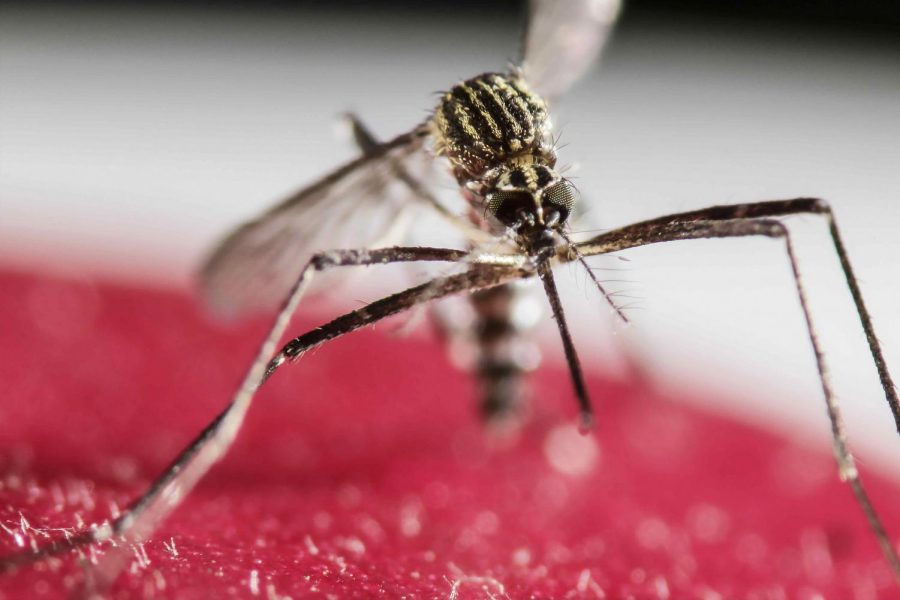First 2020 mosquitoes to test positive for West Nile found in Evanston
Jeffrey Arguedas/EFE/Zuma Press/TNS
A mosquito. The year’s first batch of West Nile-positive mosquitoes has been found in Evanston.
June 22, 2020
The North Shore Mosquito Abatement District found 2020’s first West Nile-positive mosquitoes, a city news release stated.
As of June 12, 64 batches of mosquitoes have been tested by the NSMAD, but only one batch has tested positive for the virus. The district tests female mosquitoes because they are the ones that bite humans and transmit the virus, NSMAD communications manager David Zazra said. The testing occurs three days a week and began roughly in the middle of May.
The virus, which is contracted by mosquitoes when they bite infected birds and then transmit it to humans, can result in mild symptoms, such as fever, nausea and headaches, according to the Cook County Department of Public Health. In rarer cases, West Nile virus can cause high fever, stiff neck and confusion.
“(West Nile) can pose a very serious risk, depending on the time of year during the season,” Zazra said. “West Nile virus takes a little bit of time to ramp up… If we get later into the season, into the hotter, drier conditions of the summer, typically that’s when we start to see West Nile virus amplify.”
Zazra said cases increase in hot and dry weather because that is usually the time when residents go outside and do activities such as watering plants, and the little rainfall of the season usually remains stagnant, which can encourage mosquito breeding.
The city’s website states the risk of contracting West Nile at this time of year is low, and Zazra said cases ramp up closer to July, August and September. Zazra added that the NSMAD employs larval control to try and prevent the spread of the disease.
The Illinois Department of Public Health states, however, that many cases are unapparent. Cases of West Nile are required to be reported to the local health department.
“The IDPH maintains a sophisticated disease surveillance system to monitor animals and insects that can potentially carry the virus: dead crows, robins, blue jays, mosquitoes and horses,” the IDPH website states. “The surveillance system also includes infectious disease physicians, hospital laboratory directors and infection control practitioners, local health departments and staff from IDPH’s laboratory, environmental health and infectious diseases divisions who test for and report suspect or confirmed cases of various diseases that can be caused by mosquito-borne viruses.”
Greg Olsen, Evanston’s public health manager, said the COVID-19 pandemic might also complicate matters because people who have been stuck inside due to safety restrictions might be less likely to rigidly adhere to West Nile guidelines. Olsen recommends wearing longer clothes to prevent mosquito bites, using a good insect repellent and to avoid going out during mosquitoes’ peak feeding time.
Olsen added that the most dangerous areas for mosquito breeding are often in residents’ backyards. Objects that hold standing water can serve as a breeding ground for mosquitoes, such as birdbaths or spare tires.
“You have that little, tiny bit of water that’s undisturbed, that’s stagnant, any water that’s not churned up, that’s still — that can breed mosquitoes,” Olsen said. “That’s the biggest thing to keep an eye on.”
Residents who want to know more about West Nile virus and mosquito control can dial 311.
Email: [email protected]
Twitter: @emmaeedmund
Related Stories:


